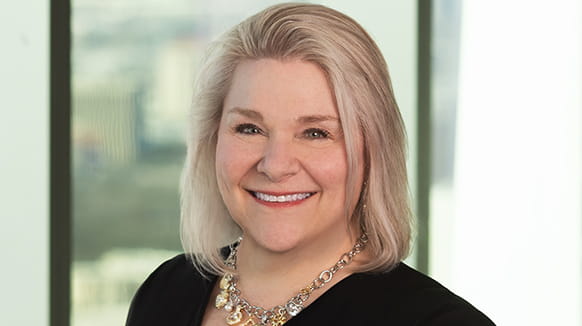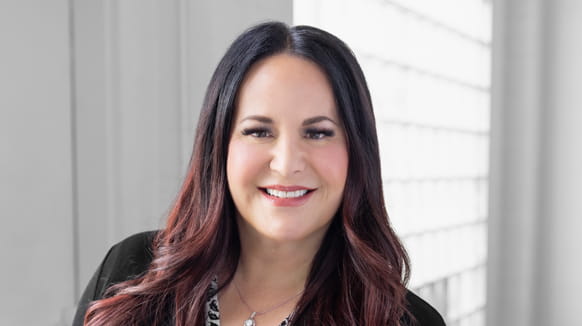The purpose of this update is to alert investment advisers about the recently adopted amendments (the “Amendments”) to, among other things, the definitions of accredited investor in Rule 501(a) of Regulation D and qualified institutional buyer in Rule 144A under the Securities Act of 1933, as amended (the “Securities Act”).1
The U.S. Securities and Exchange Commission (the “SEC”) adopted the Amendments on August 26, 2020 (the Amendments will become effective 60 days following formal publication in the Federal Register, which means the rules will start to apply to new offerings in early November 2020). These Amendments expand the definitions of accredited investor and qualified institutional buyer so that more individuals and entities may qualify for access to participate in private capital markets. The Amendments are intended to update and improve the definitions in order to identify more effectively institutional and individual investors that possess sufficient knowledge and expertise to participate in the private capital markets, which do not have the rigorous disclosure and procedural requirements provided by registration under the Securities Act. The Amendments are part of a broader effort to simplify and harmonize the exempt offering framework under the Securities Act to promote capital formation and expand investment opportunities while maintaining and enhancing appropriate investor protections.2
“Accredited Investor” Definition
The Amendments modify the accredited investor definition in Rule 501(a) of Regulation D under the Securities Act, which is a central component of the exemptions from registration under Regulation D, to add several new categories of natural persons who qualify. The SEC’s Amendments to the definition of accredited investor in Rule 501(a) add the following additional categories:
(a) Certain Professional Designations: Individuals who hold certain professional certifications or other credentials now qualify as accredited investors. The Amendments added a new category to the definition of accredited investor that permits natural persons to qualify based on certain professional certifications, designations, or other credentials issued by an accredited educational institution, which the SEC may designate from time to time by order. In conjunction with the adoption of the amendments, the SEC initially designated by order holders in good standing of the Series 7 (Licensed General Securities Representative), Series 65 (Licensed Investment Adviser Representative), and Series 82 (Licensed Private Securities Offerings Representative) licenses as qualifying natural persons. This approach provides the SEC with flexibility to reevaluate or add certifications, designations, or credentials in the future and allows for members of the public to even propose for the SEC’s consideration of additional certifications, designations, or credentials that satisfy the attributes set out in the new category.3
(b) Knowledgeable Employees: Included in the accredited investor definition are those who are knowledgeable employees of the private fund or its affiliated manager (as defined in Rule 3c-5(a)(4) under the Investment Company Act of 1940, as amended (the “Company Act”)). The change brings in the definition typically used in the context of the qualified purchaser definition. The knowledgeable employee category of accredited investor includes, among other persons, trustees and advisory board members, or persons serving in a similar capacity, of a private fund or an affiliated person of the private fund that oversees the private fund’s investments, as well as employees of the private fund or the affiliated person of the private fund who, in connection with the employees’ regular functions or duties, have participated in the investment activities of such fund for at least 12 months. Here, the SEC commented that such employees, by means of their knowledge and participation in the investment activities of the private fund, likely possess the financial sophistication and capability required to fend for themselves in evaluating potential investments.
(c) Spousal Equivalents: The Amendment adds the term “spousal equivalent” to the previous spousal item under the accredited investor definition, so that spousal equivalents may pool their finances for the purpose of qualifying as accredited investors. Here, the calculation of “joint net worth” can be the aggregate of an investor and his or her spouse (or “spousal equivalent”) and the securities purchased need not be acquired jointly. Under the prior rule, a natural person, together with a spouse, may qualify as an accredited investor by either having at least $300,000 in joint income in the two most recent years, or at least $1 million in joint net worth. The Amendments now broaden both the income and net worth criteria to include “spousal equivalents” (i.e., a cohabitant occupying a relationship generally equivalent to that of a spouse) so that the income and net worth of spousal equivalents would count toward these tests even if the securities were purchased individually and not jointly.
(d) Entity Catch-All: Additionally, the Amendment includes a catch-all entity category that includes, as part of the accredited investor definition, any entity owning investments in excess of $5 million that is not formed for the specific purpose of acquiring the securities being offered. This new catch-all brings in the standard definitions of “investments” from the qualified purchaser context. The category now includes entities such as Indian tribes, governmental bodies, funds, and entities organized under the laws of foreign countries, that own “investments” as defined in Rule 2a51-1(b) under the Company Act, in excess of $5 million and that were not formed for the specific purpose of investing in the securities offered.
(e) Investment Advisers: Further, investment advisers registered under Section 203 of the Investment Advisers Act of 1940, as amended (the “Advisers Act”), and investment advisers registered under the laws of the various states qualify as accredited investors under the Amendment. Included in the Amendment are exempt reporting advisers because, in order to qualify as an exempt reporting adviser under Section 203(m) or Section 203(l) of the Advisers Act, an adviser would otherwise be required to register as an investment adviser with the SEC and thereby meet the minimum asset thresholds triggering such requirement.
(f) Rural Business Investment Companies: Entities that qualify as a rural business investment company (“RBIC”), as defined in Section 384A of the Consolidated Farm and Rural Development Act as a company that is approved by the Secretary of Agriculture and has entered into a participation agreement with the Secretary, are also included in the updated accredited investor definition.
(g) Family Offices and Their Family Clients: The accredited investor definition is further amended to include any “family office” not formed for the specific purpose of acquiring the securities and with at least $5 million in assets under management, and its “family clients,” as each is defined in the Family Office Rule. The family office prospective investment must also be directed by a person who has such knowledge and experience in financial and business matters that such family office is capable of evaluating the merits and risks of the prospective investment.
(h) Limited Liability Companies: The Amendment now clarifies that limited liability companies are included in this list of entities that qualify for accredited investor status if they have total assets in excess of $5 million and were not formed for the specific purpose of acquiring the securities offered.
“Qualified Institutional Buyer” Definition
The prior definition of qualified institutional buyer in Rule 144A under the Securities Act contains a list of a number of entities that may qualify for qualified institutional buyer status. In order to conform this list to the newly amended accredited investor definition, the Amendment now adds RBICs and limited liability companies to the list of entities that may qualify as a qualified institutional buyer. Additionally, the qualified institutional buyer definition now contains a catch-all category that allows any entity not already included to qualify as a qualified institutional buyer when it satisfies the $100 million threshold. Those meeting this definition also satisfy the definition of qualified purchaser under the Act. The SEC commented that the $100 million threshold for these entities to qualify for qualified institutional buyer status should ensure that these entities have sufficient financial sophistication and access to resources to participate in investment opportunities that do not have the additional protections provided by registration under the Securities Act.4
Conclusion
To summarize, the SEC has adopted amendments, generally as they were proposed, to the “accredited investor” definition in Rule 501(a) of Regulation D. Among other things, these new rules:
- add new categories of natural persons that qualify as accredited investors based on certain professional certifications or designations or other credentials, or with respect to investments in a private fund, as a “knowledgeable employee” of the private fund;
- add certain entity types to the current list of entities that qualify as accredited investors and a new category for any entity with “investments,” as defined in Rule 2a51-1(b) under the Company Act, in excess of $5 million and that was not formed for the specific purpose of investing in the securities offered;
- add family offices with at least $5 million in assets under management and their family clients to the definition;
- add the term “spousal equivalent” to the definition of accredited investor, so that spousal equivalents may pool their finances for the purpose of qualifying as accredited investors; and
- codify certain staff interpretive positions that relate to the accredited investor definition.
The SEC further adopted an amendment to the definition of “qualified institutional buyer” in Rule 144A to expand the list of entities that are eligible to qualify as qualified institutional buyers. The amendments are designed to better align access to unregistered offerings with the financial sophistication required to assess an investment opportunity without the added investor protections that come with registration under the Securities Act.5
1 In addition to the above changes, the SEC also amended Rule 163B and Rule 215 under the Act, and Rule 15g-1 under the Securities Exchange Act of 1934, as amended.
2 Amending the “Accredited Investor” Definition, Final Rule, Rel. No. 33-10824, File No.: S7-25-19, (Aug. 26, 2020), https://www.sec.gov/rules/final/2020/33-10824.pdf.
3 SEC Modernizes the Accredited Investor Definition, Press Release 2020-191, U.S. Securities and Exchange Commission, (Aug. 26, 2020), https://www.sec.gov/news/press-release/2020-191.
4 Amending the “Accredited Investor” Definition, Final Rule, Rel. No. 33-10824, File No.: S7-25-19, (Aug. 26, 2020), https://www.sec.gov/rules/final/2020/33-10824.pdf.
5 Id.







